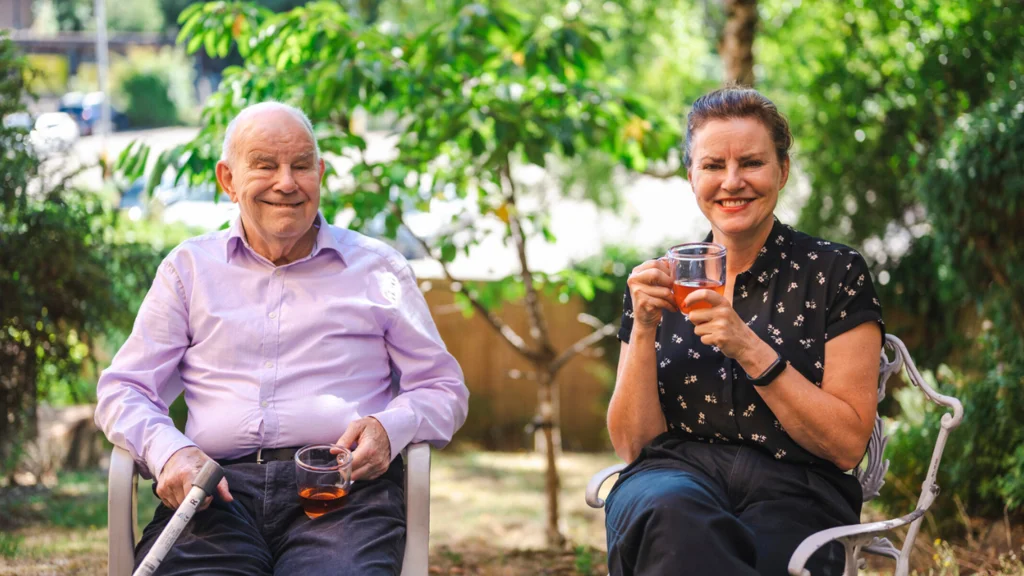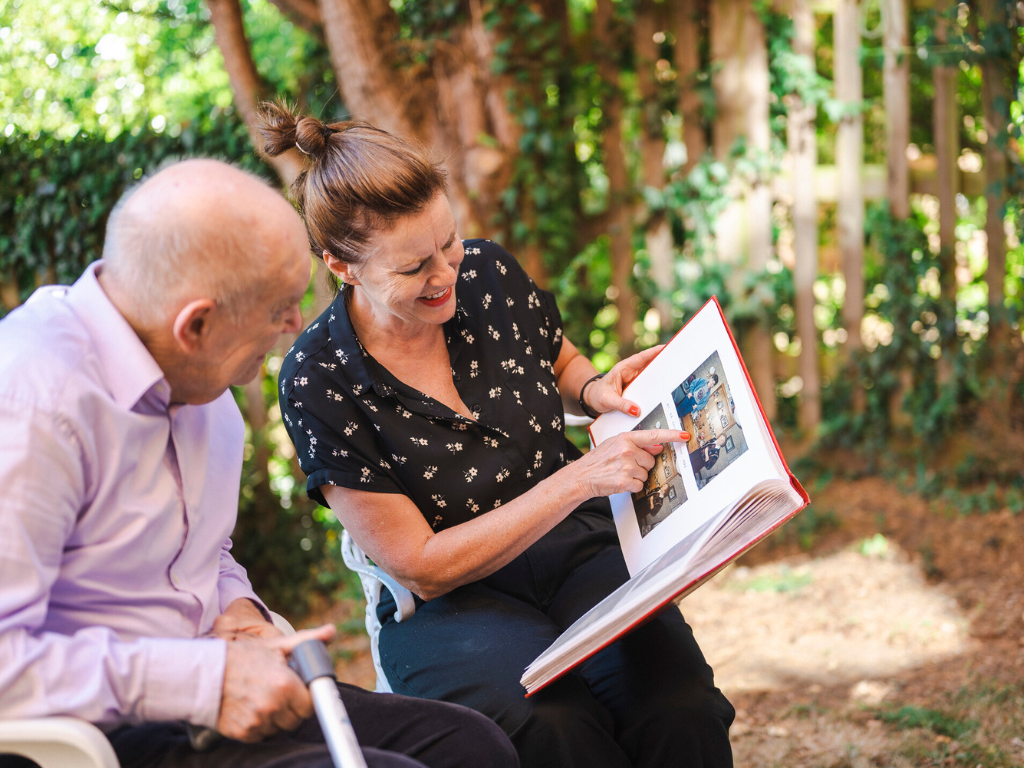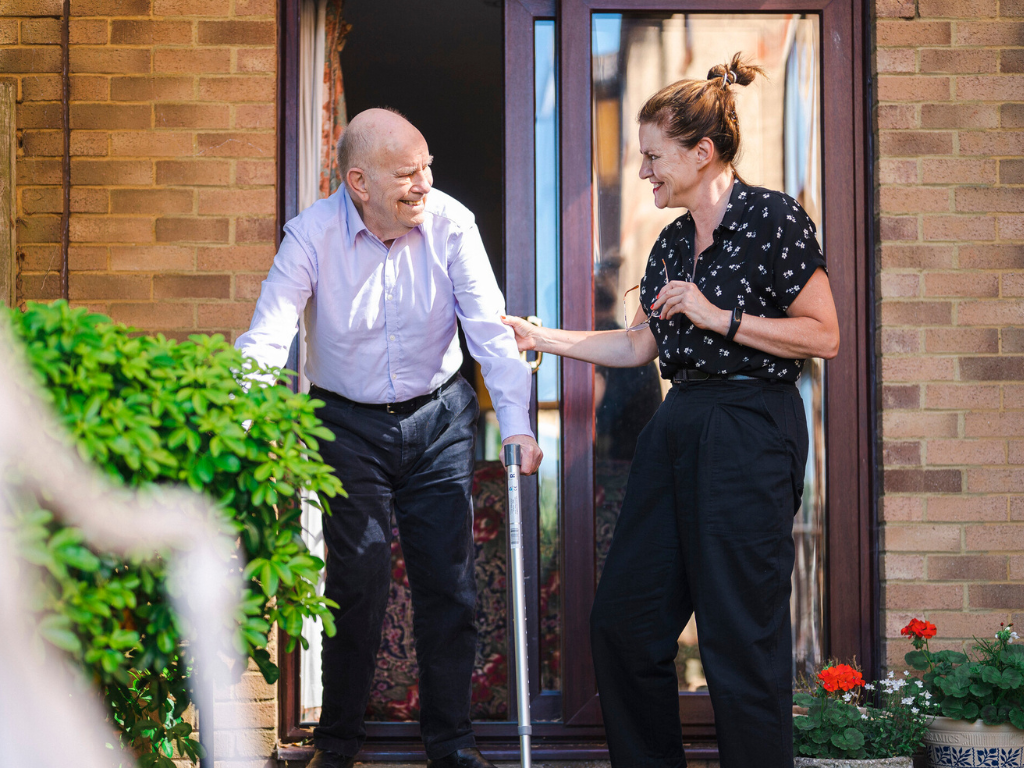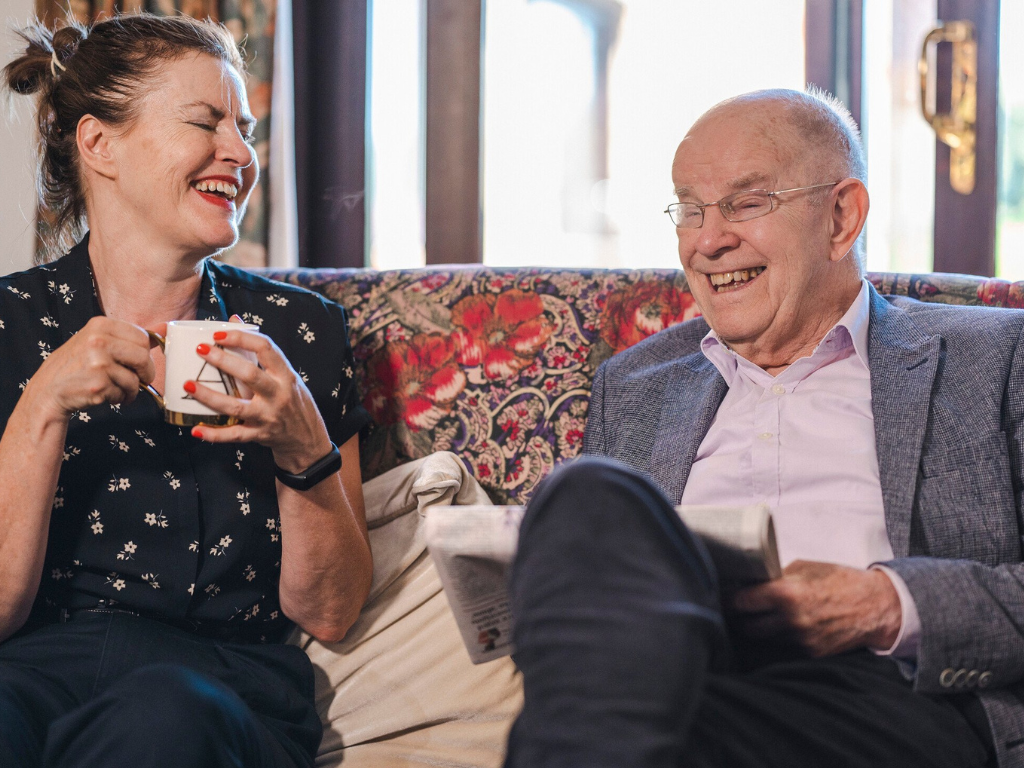“The role of a carer creeps up on you, and you must somehow accommodate it into your life... I often say that being a carer is a battle, it’s a fight for help, support, funds. I can’t find a more appropriate word for it."
Ann Campbell, 59, who is carer to her father, is passionate about unpaid carers receiving the recognition and support that they deserve, and is a trustee at the Enfield Carer’s Centre Enfield Carers Centre – Empowering Carers.
Ann’s career is in communications, including crisis communications and charity campaigning. She lives in north London with her partner Charles and more recently also with her dad Alan, for whom she is a carer.
Ann got involved with the Age Without Limits campaign when she heard a request for carers to take part in a photo shoot to create an age-positive image library. She says, “It seemed a good idea to have a library of positive but realistic images of older people. I don’t necessarily mean older people doing extra-ordinary things, like running marathons. More images of ageing that illustrate the pleasures of living, even at a slower pace, and how rich life is at any age.
“I thought, why not include me and dad? Being part of the library seemed to chime with things that I feel strongly about. My dad and I don’t go out dancing but I knew that we could portray love and connection, and that we had something to say about the changing relationships between parents and children in later age, as well as the satisfaction I have from being a carer and making a good life for my father.”
On becoming a carer
“I’ve been a carer for my dad, Alan, since 2018, when my mum died. My parents had a long, traditional marriage, and once my dad was on his own it became clear that he wasn't going to be able to look after himself, especially managing his diabetes and increasingly poor hearing and mobility. At 80, he had been riding a bike and driving a car, but he declined dramatically after my mum’s death and losing her took a huge toll on him.
“I became his carer and help with the practicalities of life as he became less and less independent. He tried living on his own for a bit in sheltered accommodation nearer to me, but it wasn’t long before he needed more care, and came to live with me and my partner Charles, over a year ago.
“I’m officially his registered carer, a role which has a few advantages – early Covid vaccination was one – but it is hard, unpaid work and a lot of responsibility. It was never my ambition or wish to become a carer. I don’t think it’s something anyone desires! But out of my siblings, I was the one best placed to take it on. And there didn’t seem to be another option.
“At work I am senior, valued, respected. But a carer is invisible. I do an important job, for no wage, saving huge amounts of money for the state but I don’t feel that – outside my family – my care role is valued or acknowledged. The job of securing the few allowances carers are entitled to is onerous, and we couldn’t live on them.”
“We need to think about how we’re going to support carers and other people like me and my dad. The cost to the state, if people did not accept unpaid care responsibilities, would be huge.”
“There are millions of carers who juggle unpaid caring responsibilities with full-time work, bringing up family, even – if you are a young carer – being in full time education. Caring often has to be absorbed into an already busy life. I moved my dad in without any real understanding of the work involved.
“And you are completely unprepared for it – there’s no training! - and the effects on your own wellbeing. It’s practically a full-time job to navigate social and health services to get the help that an old chap like my dad needs, with walking, with hearing, medicines for all his health needs, safety adaptations to my house, personal care. There’s no roadmap!
“I know my dad would rather be living back in the family home, but it just wasn't practical, and it would be a pale imitation of the life that he led with my mum. There is satisfaction in creating a life for him. He’s well cared for and there’s family all round. And he doesn’t have to worry about anything. He can just enjoy his old age.
“We like simple pleasures together, the garden and the crossword. Sitting in the sunshine.
“Caring is both hard and lovely”, Ann concludes.



